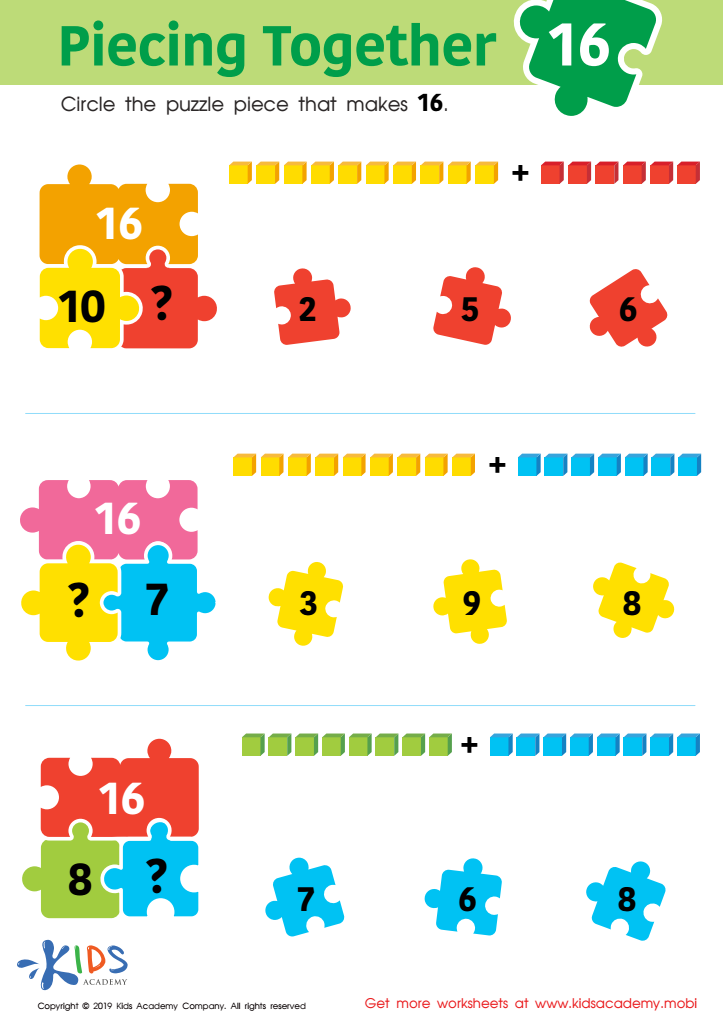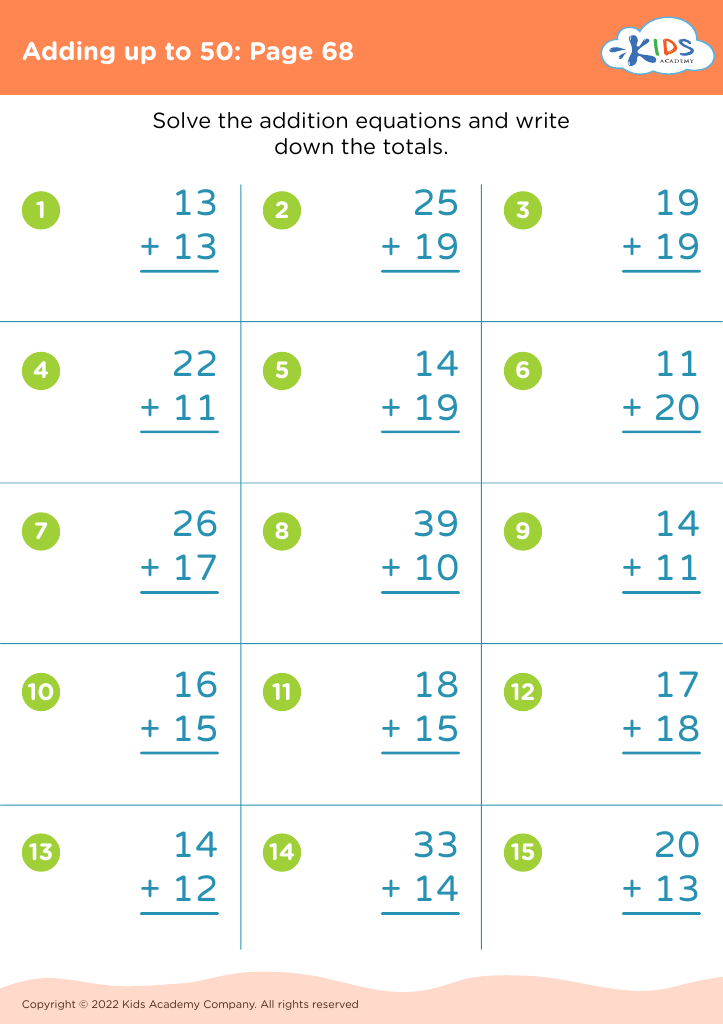Recognizing equivalent fractions Math Worksheets for Ages 3-9
5 filtered results
-
From - To
Discover our engaging "Recognizing Equivalent Fractions Math Worksheets" designed specifically for children aged 3-9. These worksheets provide a fun and interactive approach to learning fractions through vibrant illustrations and relatable examples that resonate with young learners. Each exercise helps children understand the concept of equivalency in fractions, building a strong mathematical foundation. Ideal for parents and educators, our resources encourage independent learning while enhancing critical thinking skills. Whether used in the classroom or at home, these worksheets are perfect for sparking curiosity and fascination with numbers, making math an enjoyable adventure for your little ones! Explore today and boost their confidence in math!


Piecing Together 16 Worksheet
Recognizing equivalent fractions is an essential skill for children aged 3-9, as it forms the foundation for more complex mathematical concepts in later grades. For parents and teachers, caring about this topic is crucial for several reasons.
Firstly, understanding equivalent fractions encourages critical thinking and helps children develop a strong number sense. It teaches them that different representations can reflect the same quantity, fostering flexibility in their thinking about numbers. This skill can enhance their problem-solving abilities as they progress in their math education.
Secondly, recognizing equivalent fractions introduces essential ideas about division and fractions early on, making future topics like addition, subtraction, and comparing fractions more approachable. By building a solid foundation now, educators and parents can help alleviate potential math anxiety later on.
Lastly, this knowledge promotes collaborative learning and a supportive classroom environment, where children learn to explain their reasoning and understand diverse perspectives. This social interaction not only boosts their confidence but also deepens their comprehension of mathematics.
In summary, focusing on equivalent fractions aids in creating a well-rounded mathematical foundation, equipping children with skills critical for their academic journey and fostering a positive attitude toward learning.



 Assign to My Students
Assign to My Students





















